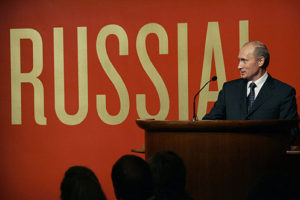Student protest is one of the most visible forms of opposition to Russian aggression in Ukraine. Now when public protests are banned, activists are forced to create new modes of resistance and organization.


Student protest is one of the most visible forms of opposition to Russian aggression in Ukraine. Now when public protests are banned, activists are forced to create new modes of resistance and organization.

Not only was Macron badly elected, but half of his votes in the second round were in no way in support of record or his programme. They come from a vote of refusal, to prevent the election of Marine Le Pen, which the polls on the evening of the first round had presented as a serious possibility.

The result of the failure of social democracy is that social emergencies do not find answers if we do not bring into play the balance of power of social mobilization, if we do not attack to the capitalist system.

The Russian invasion of Ukraine is the second defining moment of the New Cold War in which the world has been plunged since the turn of the century as a result of the US decision to expand NATO.

Imperialist countries invade weaker nations and try to impose their rule over them. Once the world is divided up by the great powers, one imperialist’s gain can come only at the expense of another. That is the nub of the matter today.

The relations between Western powers and Russia have never been closer to war since WWII than after the Russian invasion of Ukraine, while the US and Russia was never closer to each other than in Syria after the chemical deal in September 2013.

Putin’s approval rating spiked after the 2014 annexation of Crimea, as it had fifteen years earlier with the bombing of Chechnya. An ideological climate of conservatism and nationalism has dominated the country for almost ten years, at least among older Russians.

Already, the situation has significantly raised the danger of a broader military conflict in Europe. A full scale or even partial invasion of Ukraine will lead to death and destruction on an enormous scale.

It is not an exaggeration to say that what is currently happening in the heart of the European continent is the most dangerous moment in contemporary history and the closest to a Third World war since the Soviet missile crisis in Cuba in 1962.

An interview conducted by DEA (Workers’ Left) in Greece with Miguel Urbán — a comrade from Anticapitalistas in Spain who is also elected to the European Parliament — about the current situation in “Fortress Europe.”

It is a political “moment” where everyone—both the ones above and the ones from below—understands that the status quo is not sustainable, and they must prepare for drastic changes.

The SPD has won (narrowly) because it gained the votes of many on the left. These voters will expect some changes: more and better public services; taxes on the rich; higher wages.

The account of this disastrous August, when temperatures and drought reached record-high levels even for a warm and dry country like Greece, is literally tragic…

The coming months in Greece will be far from smooth. The labor law, the privatization of social security, the repression in universities, will come up against resistance. This is where the future of Mitsotakis and the course of future developments will be determined.

Iglesias’s last episode of resigning all of his positions left Podemos in a deep internal crisis that portends a ferocious power struggle. It’s a crisis that will also have consequences inside UP.